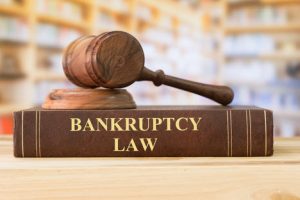Why Do People File Bankruptcy?

It should come as no surprise that medical bills are once again the top reason that people seek bankruptcy protection.
Medical bills are often very onerous in and of themselves. One in five working Americans with health insurance who are under 65 have had problems paying their medical bills in the past year; to deal with the expense, two-thirds of these people burned through most or all of their savings and the other third took on a second job. Overall, about a quarter of Americans have medical bills that they essentially cannot afford to pay.
In other cases, medical bills trigger a snowball effect. To many people, items like physical therapy, medical treatments, and prescription medication take priority over credit cards and other kinds of unsecured debt. As a result, the non-medical debt quickly becomes unmanageable, forcing these families into making some difficult financial decisions.
Dealing with Medical Bills in Bankruptcy
The average American household with credit card debt has over $16,700 in such debt. That means about $1,300 a year in interest payments alone. While some of this debt is surely related to overspending and splurging, a good deal of it is due to the fact that wage growth has been at or below 5 percent for most of the last five years. So, in many cases, the cost of living is going up quickly, especially with regard to medical bills, school tuition, and a few other items, while paychecks are about the same as they were a few years ago.
The numbers simply don’t add up, and it’s not the debtor’s fault.
As a result, many people live on the financial precipice. They can weather one storm, such as an unexpected illness. But when lightning strikes twice in the same place, perhaps an illness coupled with a layoff, the stress is simply too much. Fortunately, consumers have legal options in these situations.
Many times, that option is Chapter 7 bankruptcy. Debtors whose monthly income is below the average level for their particular geographic area and household size are eligible for “liquidation” bankruptcy.
The process begins with a petition and schedules; in an emergency situation, such as impending foreclosure, expedited filing is usually available. Debtors must take care to list all their assets and liabilities in their bankruptcy paperwork, or else they risk possible civil or criminal fallout.
About six weeks thereafter, the bankruptcy trustee (person who manages the bankruptcy for the judge) reviews all the paperwork. At this meeting, debtors must provide proof of identity, usually their Social Security cards, and also provide other financial documents as requested by the trustee, such as prior tax returns.
About six months later, the judge enters a discharge order which forgives most unsecured debts, including:
- – Medical bills,
- – Credit cards,
- – Payday loans,
- – SBA loans, and
- – Some back taxes.
Debtors keep all their exempt assets, including things like houses, cars, personal property, and retirement accounts.
Go With Experienced Attorneys
Chapter 7 bankruptcy eliminates medical bills and other unsecured debts. For a free consultation with an experienced bankruptcy attorney in Chicago, contact the Bentz Holguin Law Firm, LLC. Convenient payment plans are available.
Resources:
usatoday.com/story/money/personalfinance/2017/05/05/this-is-the-no-1-reason-americans-file-for-bankruptcy/101148136/
nerdwallet.com/blog/average-credit-card-debt-household/


